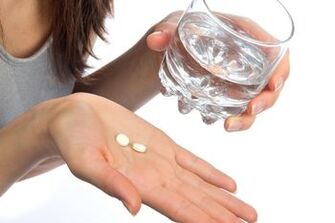Antibiotics for acute cystitis

- Fluoroquinolones;
- Nitrofurans;
- Phosphonate-based drugs.
Antibiotics for Chronic Cystitis

- Surgical intervention for anatomical defects and/or the presence of chronic infectious lesions;
- Be careful about hygiene;
- Choose comfortable underwear;
- Treat immune diseases;
- Temporary abstinence from sexual contact.
Prevent recurrence of cystitis
Selected Antibacterial Drugs for Cystitis
Phosphate antibiotics
- Single use convenience;
- Low incidence of side effects when used;
- Limited contraindications (severe renal failure, children under 5 years of age);
- This drug is approved for use during pregnancy.
Nitrofurans
- Indigestion (nausea, vomiting);
- Abdominal pain of varying intensity;
- Dizziness;
- drowsiness;
- Toxic effects on liver and kidneys.
Fluoroquinolones
Cephalosporins
Tetracyclines
Penicillins
However, penicillins have a high safety profile, which allows them to be used in the treatment of children and pregnant women.





























